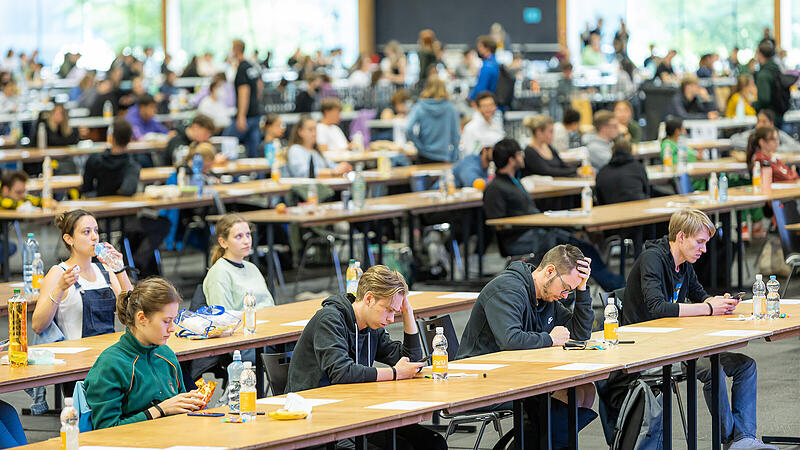From 2023 there will be a significantly larger block that will be used to test social skills. The preparatory work at the medical universities is still ongoing, the Ministry of Education confirms a report in the “Presse” (Tuesday edition). Basically, the test is adjusted every year, the focus in the current performance agreements of medical universities and ministries is on social skills.
Since 2013, the MedAT, which has been held every year at the beginning of July, has decided who can start training in human medicine or dentistry at the public medical universities of Vienna, Graz and Innsbruck or the medical faculty of the University of Linz. The current 1,850 places go to those applicants with the best test results, with 75 percent of the places being reserved for people with an Austrian Matura certificate.
Social skills are becoming more important
The contents of the all-day test are upper-level knowledge from biology, chemistry, physics and mathematics, reading skills and text comprehension as well as cognitive skills (e.g. sequence of numbers, memory, recognizing implications). “Social-emotional skills” must already be proven in a separate part of the test, and prospective dentists must also demonstrate manual skills.


View picture gallery
The tests are evaluated and adjusted every year, for example with a view to the fact that women performed significantly worse for a while. In 2015, “social decision-making” was added as a new test element to MedAT, and later it was expanded to include the “recognising emotions” section. The focus is currently again on social skills: In their respective performance agreements for the years 2022-24, the medical universities have made a commitment to the Ministry of Education to jointly submit proposals “for greater consideration of social skills” in their joint admissions process and, after consultation with the implement ministry. The spokesman for the Medical University of Vienna told the APA that work has been going on for several months.
Always a reason for debate
The Ministry of Education hopes to be able to present the results of this work in the coming weeks. By the end of the year, the medical universities should then determine the content of the MedAT for the coming year by ordinance, so that implementation in July 2023 is possible. The goal in terms of content is that the number of questions in the existing block on social and emotional skills is “significantly increased” and this area is thus upgraded, according to a spokesman for the Ministry of Education for the APA.
The admission procedures for medical studies have always been a cause for debate. While the focus was primarily on the number of places for first-year students, the current focus is on questions of content. The trigger was the demand by the Secretary General of the Austrian Society for Paediatrics and Primary in the LKH Hochsteiermark in Leoben, Reinhold Kerbl, for a mandatory one-year nursing internship instead of the tests. The specific demand found hardly any supporters in the ongoing debate. “Nursing is a qualified profession and not a transitory post for prospective medical students,” emphasized Elisabeth Potzmann, Austrian Health and Nursing Association, on Tuesday in a broadcast.
A need for change is seen
However, the need for changes in the medical admission test is seen very well. Medical Association President Johannes Steinhart called for greater inclusion of empathic skills in the test. The Vienna City Councilor for Health Peter Hacker (SPÖ) wants to consider working as a paramedic, nurse or completing a social year as additional criteria, his Styrian counterpart Juliane Bogner-Strauß (ÖVP) voluntary work and school grades. If social activities are taken into account, however, implementation in accordance with the law is “almost impossible”, warned Markus Müller, Rector of the Medical University of Vienna in the “Presse”.
Health Minister Johannes Rauch (Greens) was not against changes in access to medical training on Tuesday in the Ö1 “Morgenjournal” – he is not technically responsible for it either. For Rauch, the decisive question when it comes to the shortage of doctors is what happens to the graduates. “Let’s talk about the overall system and not just turn a small screw,” appealed to everyone involved, from the federal states to the medical association to hospital operators and training centers.
Source: Nachrichten



